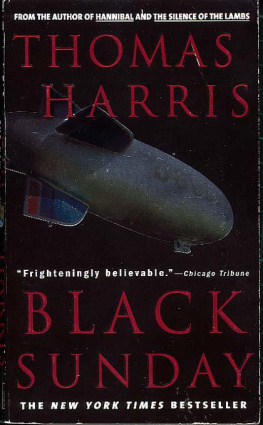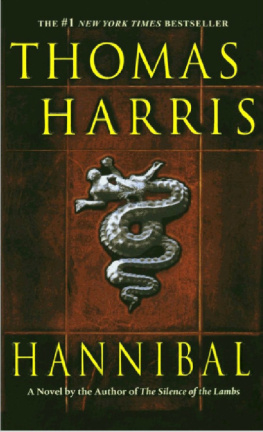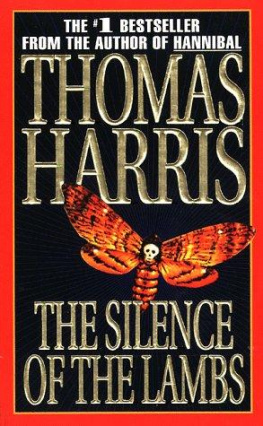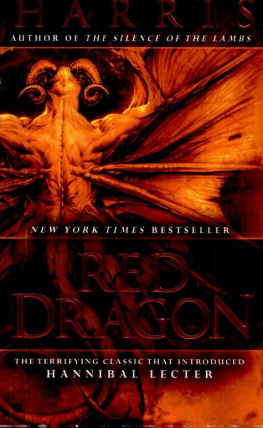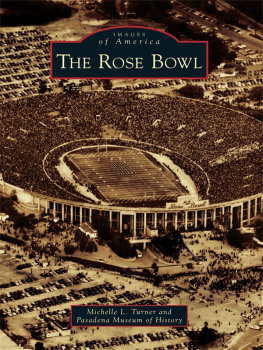2002-10-07.
BLACK SUNDAY
Thomas Harris
1975
ISBN No. 0-440-20614-6
Dell Publishing
Random House, Inc
Table of Contents
Chapter 1
Night fell as the airport taxi rattled along the six miles of coastal road into Beirut. From the back seat, Dahlia Iyad watched the Mediterranean surf fade from white to gray in the last light. She was thinking about the American. She would have to answer many questions about him.
The taxi turned onto the Rue Verdun and threaded its way into the heart of the city, the Sabra district, filled with many of the refugees from Palestine. The driver needed no instructions. He scanned his rear-view mirror closely, then turned off his lights and pulled into a small courtyard near the Rue Jeb el-Nakhel. The courtyard was pitch dark. Dahlia could hear distant traffic sounds and the ticking of the motor as it cooled. A minute passed.
The taxi rocked as the four doors were snatched open and a powerful flashlight blinded the driver. Dahlia could smell the oil on the pistol held an inch from her eye.
The man with the flashlight came to the rear door of the taxi, and the pistol was withdrawn.
"Djinniy," she said softly.
"Get out and follow me." He ran the Arabic words together in the accent of the Jabal.
A hard tribunal waited for Dahlia Iyad in the quiet room in Beirut. Hafez Najeer, head of Al Fatah's elite Jihaz al-Rasd (RASD) field intelligence unit, sat at a desk leaning his head back against the wall. He was a tall man with a small head. His subordinates secretly called him "The Praying Mantis." To hold his full attention was to feel sick and frightened.
Najeer was the commander of Black September. He did not believe in the concept of a "Middle East situation." The restoration of Palestine to the Arabs would not have elated him. He believed in holocaust, the fire that purifies. So did Dahlia Iyad.
And so did the other two men in the room: Abu Ali, who controlled the Black September assassination squads in Italy and France, and Muhammad Fasil, ordnance expert and architect of the attack on the Olympic Village at Munich. Both were members of RASD, the brains of Black September. Their position was not acknowledged by the larger Palestinian guerrilla movement, for Black September lives within Al Fatah as desire lives in the body.
It was these three men who decided that Black September would strike within the United States. More than fifty plans had been conceived and discarded. Meanwhile, U.S. munitions continued to pour onto the Israeli docks at Haifa.
Suddenly a solution had come, and now, if Najeer gave his final approval, the mission would be in the hands of this young woman.
She tossed her djellaba on a chair and faced them. "Good evening, Comrades."
"Welcome, Comrade Dahlia," Najeer said. He had not risen when she entered the room. Nor had the other two. Her appearance had changed during her year in the United States. She was chic in her pants suit and a little disarming.
"The American is ready," she said. "I am satisfied that he will go through with it. He lives for it."
"How stable is he?" Najeer seemed to be staring into her skull.
"Stable enough. I support him. He depends on me."
"I understand that from your reports, but code is clumsy. There are questions. Ali?"
Abu Ali looked at Dahlia carefully. She remembered him from his psychology lectures at the American University of Beirut.
"The American always appears rational?" he asked.
"Yes."
"But you believe him to be insane?"
"Sanity and apparent rationality are not the same, Comrade."
"Is his dependency on you increasing? Does he have periods of hostility toward you?"
"Sometimes he is hostile, but not as often now."
"Is he impotent?"
"He says he was impotent from the time of his release in North Vietnam until two months ago." Dahlia watched Ali. With his small, neat gestures and his moist eyes, he reminded her of a civet cat.
"Do you take credit for overcoming his impotence?"
"It is not a matter of credit, Comrade. It is a matter of control. My body is useful in maintaining that control. If a gun worked better, I would use a gun."
Najeer nodded approval. He knew she was telling the truth. Dahlia had helped train the three Japanese terrorists who struck at Lod Airport in Tel Aviv, slaying at random. Originally there had been four Japanese terrorists. One lost his nerve in training, and, with the other three watching, Dahlia blew his head off with a Schmeisser machine pistol.
"How can you be sure he will not have an attack of conscience and turn you in to the Americans?" Ali persisted.
"What would they get if he did?" Dahlia said. "I am a small catch. They would get the explosives, but the Americans have plenty of plastique already, as we have good reason to know." This was intended for Najeer, and she saw him look up at her sharply.
Israeli terrorists almost invariably used American C-4 plastic explosive. Najeer remembered carrying his brother's body out of a shattered apartment in Bhandoum, then going back inside to look for the legs.
"The American turned to us because he needed explosives. You know that, Comrade," Dahlia said. "He will continue to need me for other things. We do not offend his politics, because he has none. Neither does the term 'conscience' apply to him in the usual sense. He will not turn me in."
"Let's look at him again," Najeer said. "Comrade Dahlia, you have studied this man in one setting. Let me show him to you in quite different circumstances. Ali?"
Abu Ali set a 16-millimeter movie projector on the desk and switched out the lights. "We got this quite recently from a source in North Vietnam, Comrade Dahlia. It was shown once on American television, but that was before you were stationed in the House of War. I doubt that you have seen it."
The numbered film leader blurred on the wall and distorted sound came from the speaker. As the film picked up speed, the sound tightened into the anthem of the Democratic Republic of Vietnam, and the square of light on the wall became a whitewashed room. Seated on the floor were two dozen American prisoners of war. A cut to a lectern with a microphone clamped to it. A tall, gaunt man approached the lectern, walking slowly. He wore the baggy uniform of a POW, socks and thong sandals. One of his hands remained in the folds of his jacket, the other was placed flat on his thigh as he bowed to the officials at the front of the room. He turned to the microphone and spoke slowly.
"I am Michael J. Lander, Lieutenant Commander, U.S. Navy, captured February 10, 1967, while firebombing a civilian hospital near Ninh Binh... near Ninh Binh. Though the evidence of my war crimes is unmistakable, the Democratic Republic of Vietnam has not done to me punishment, but showed me the suffering which resulted from American war crimes like those of my own and others... and others. I am sorry for what I have done. I am sorry we killed children. I call upon theAmerican people to stop this war. The Democratic Republic of Vietnam holds no... holds no animosity toward the American people. It is the warmongers in power. I remain ashamed of what I have done."
The camera panned over the other prisoners, sitting like an attentive class, their faces carefully blank. The film ended with the anthem.
"Clumsy enough," said Ali, whose English was almost flawless. "The hand must have been tied to his side." He had watched Dahlia closely during the film. Her eyes had widened for a second at the close-up of the gaunt face. Otherwise she remained impassive.
"Firebombing a hospital;" Ali mused. "He has experience in this sort of thing, then."
"He was captured flying a rescue helicopter. He was trying to retrieve the crew of a downed Phantom," Dahlia said. "You have seen my report."
Next page
